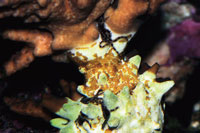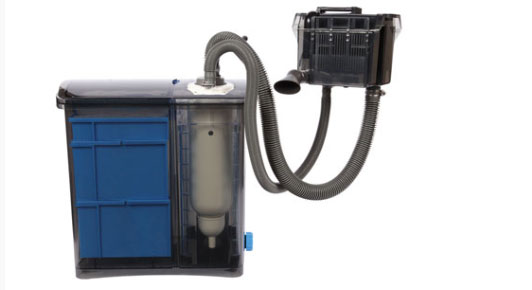Eczema is an inflammatory skin condition affecting up to 20 percent of children and around 5 percent of adults. It is characterised by intensely itchy rough red patches and blisters on the skin which may weep and crust over and there can also be thickening of the skin. The risk of infection is high.
What causes eczema?
No one knows the exact cause of eczema but researchers believe that it is an active response by our immune system to an irritant of some kind so is linked with allergies and food intolerances. There is also a tendency for eczema to run in families which indicates a genetic role.
Many things can trigger a flare up of eczema symptoms including temperature changes, detergents, chemicals in cosmetics and cleaning products, fibres, pet hairs, pet dander, dust, sweating, infection, stress and even the common cold.
However, something that has been gaining increasing recognition for being a significant trigger factor for eczema is food allergies, (particularly to dairy products and wheat), and a deficiency of essential fatty acids.
What is the treatment for eczema?
There are several different types of eczema but they all present with the same symptoms and therefore the treatment is the same. Treatment for eczema consists of identifying the triggers and avoiding them, and finding ways of dealing with the symptoms which is usually by drugs and steroidal creams.
People who are suffering from eczema need to take extra care of their skin as their skin is likely to be a lot more sensitive than most people's and at the same time they must try to avoid potential triggers and ensure they get the right kind of foods in their diet.
One area that has been getting a lot of attention due to the findings of a few studies is the role which Omega 3 fatty acids might play in helping to control eczema. Omega 3 can be found in fatty fish such as herring, mackerel and tuna. Although more research is required, there is enough evidence to suggest that supplementing with Omega 3 fish oil could alleviate the symptoms of eczema and therefore could offer some relief for eczema sufferers.
Omega 3 and eczema
It's certainly interesting to note that the number of people suffering from eczema has increased over the past few decades which just so happens to coincide with a decline in fish consumption and therefore in the essential Omega 3 fatty acids, a lack of which has been implicated as a possible trigger for eczema. Indeed the first sign of an Omega 3 deficiency is dry, flaky, itchy skin.
One reason that Omega 3 could be helpful is that it is already known to be anti-inflammatory and as such could ease the inflammation associated with eczema. However, Omega 3 has many other regulatory functions in the body and is therefore beneficial for health in general.
Tips for coping with eczema
- Avoid any skincare products, soaps or cosmetics that contain harsh chemicals, shop around for the most natural products you can find
- Protect your skin when having to handle any household cleaning products by wearing protective gloves and clothing
- Drink plenty of water to help keep the body hydrated, to flush out toxins and keep the skin moisturised.
- It's important to keep the skin clean so showering or bathing daily is a good idea, however, never use hot water as this will irritate eczema and make the symptoms worse, use only lukewarm water in your bath and don't use bubble bath or fizzy bath bombs.
- Use non-biological washing powder or liquid for washing your clothes and make sure that the clothes are rinsed properly as any residue of detergent could result in an eczema flare up. Do not use fabric softeners.
- Avoid the use of perfumes and fragrances in any products whether for personal or household use.
- After getting out of the bath or shower, don't be tempted to roughly towel dry your skin, you shouldn't do this anyway, instead just gently pat your skin dry to avoid damaging the skin.
- Skin that is troubled with eczema needs more moisture so make sure you apply a good moisturiser each and every time you wash and even in between. You can add emollients to the bath water which will help to moisturise the skin.
- Avoid tight fitting clothes made of synthetic fibres and opt for loose fitting comfortable clothing made of natural materials instead.
- Keep yourself cool so consider turning down the heating in your home as any kind of heat will make the eczema symptoms worse.
- During a flare up you could try adding a few teaspoons of bicarbonate of Soda to your bath water as this will help to reduce acidity levels
- Invest in a bottle of fish oil as it just might ease the symptoms of eczema and if nothing else, it will benefit your overall physical and mental health.

 Coral and Invertebrate Quarantine Procedures
Coral and Invertebrate Quarantine Procedures
 Keep Your Aquarium Clean With These Tank Tools
Success in maintaining a freshwater system takes applied kno
Keep Your Aquarium Clean With These Tank Tools
Success in maintaining a freshwater system takes applied kno
 Aquarium Filtration Done Right
Today, keeping unique aquatic species is now commonplace tha
Aquarium Filtration Done Right
Today, keeping unique aquatic species is now commonplace tha
 Fish and Fungus
Black Moor Q. I have two large black moor goldfish, one larg
Fish and Fungus
Black Moor Q. I have two large black moor goldfish, one larg
 Red Algae in Marine Aquarium
Q. Ive been keeping saltwater fish for about five years, and
Red Algae in Marine Aquarium
Q. Ive been keeping saltwater fish for about five years, and